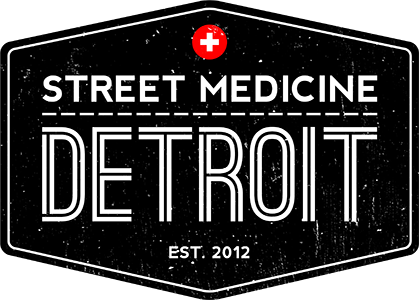After college I moved from Massachusetts to Detroit and began an AmeriCorps position at Neighborhood Service Organization (NSO). I wanted to leave my comfort zone, see more of the world, and make an impact in area that needed help. I wasn’t sure how I should do that, but the move felt right, and so I went.
My AmeriCorps position taught me a lot about the real world. I learned quickly that in the field of human services what matters most is the skill that you can offer to your clients. Yes, it is critical to be passionate and caring. But empathy alone is not enough. I learned that people do not need me to feel bad for them. Rather, they need resources, counsel, and compassion - in addition to food, a house, good health, and some general peace of mind. That means they need social workers, doctors, teachers, and nurses.
Growing up, I’d seen nurses as doctors’ helpers. I had considered it as a profession, but wasn’t sure I could handle not calling the shots. I wanted to be self-sufficient and capable of helping individuals in need, without always deferring to someone else’s judgment. When I met the nurse practitioner at NSO I began to understand the scope of a nurse’s practice. In watching him, I saw a person with autonomy, compassion, patience, resourcefulness, and perspective. He got down on the level of his patients, met them where they were at, and encouraged them to take small steps forward.
Motivated that I’d found a concrete way to make an impact in people’s lives, I got started on nursing school. Toward the end of my accelerated BSN program, with a little more free time, I found myself back at NSO.
Street Medicine gives me purpose and autonomy. I have the opportunity to use skills I learned in the classroom and clinical setting to help people who aren’t getting medical care or health education from anywhere else. When I volunteer, I consistently feel that I am making a difference.
Most of the patients we treat don’t have access to computers or a primary care doctor to call. The first patient I talked to didn’t know the basics of diabetes. He looked at me with rapt attention as I explained how to tell if [his blood glucose] was high or low, what to do if it felt low, and how to take care of his feet. I explained that because he couldn’t feel his feet as well, he was more likely to step on something and not realize it. We talked about using a mirror to look at his feet and drying them off completely before putting his socks back on. When he left he looked at me and said, ‘Thank you. This means a lot.’
I don’t always feel as purposeful as I did in that moment. Some patients are not as receptive as he was. Often, it’s because they have other things on their mind. I have to remind myself that my priorities are not always the same as my patients’ priorities. Street Medicine works because it allows health practitioners and students to meet patients on their turf. Many homeless individuals do not seek out care immediately because they have more pressing concerns: Where will I sleep tonight? How can I find food? What paperwork do I need to get so I can apply for housing and get my life together?
Street Medicine forces me to have a perspective about these things and consider the road blocks that homeless individuals experience on a daily basis. It also gives me a sense of autonomy and self-worth that I have yet to experience as a floor nurse. On a street run, I ask patients what their primary concern is, take a more thorough history, and then use these findings to guide my physical assessment. After reporting back to the nurse practitioner and documenting my work, I develop a nursing plan of care and recommend specific interventions. The clinical preceptor is the one distributing the medications, but I am able to educate patients on their use and answer any questions they may have.
I have just been admitted to the University of Michigan’s Family Nurse Practitioner program. While I am not sure where I will end up, I know that I want to use my skills out in the community, helping those in need. Street Medicine has helped shape my path forward from here.
Anna Kern

